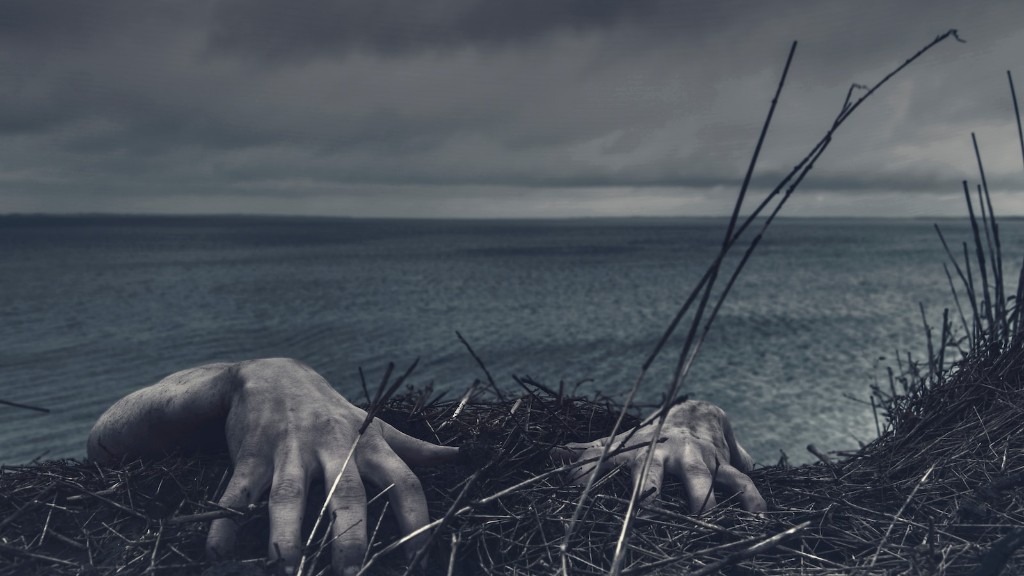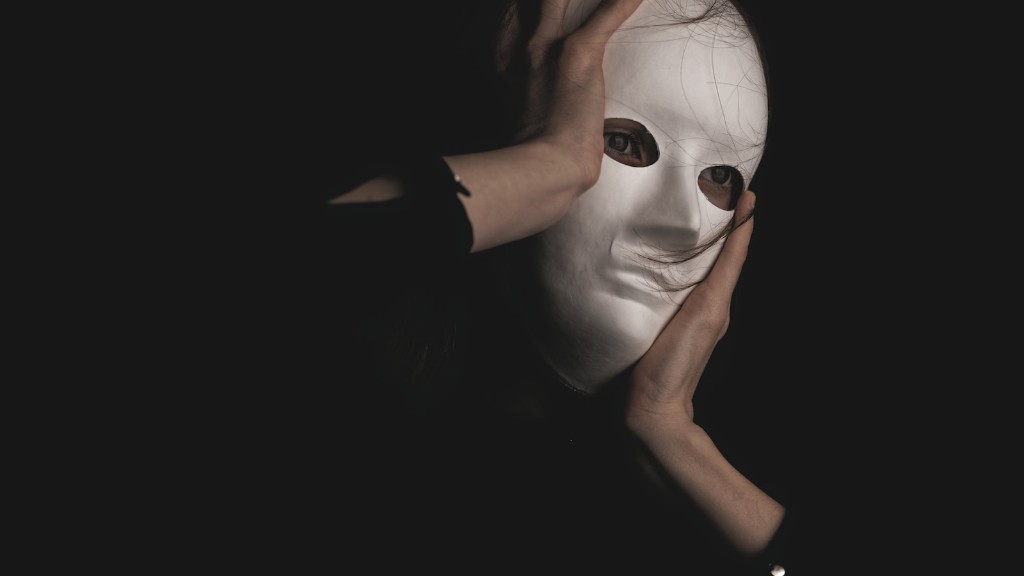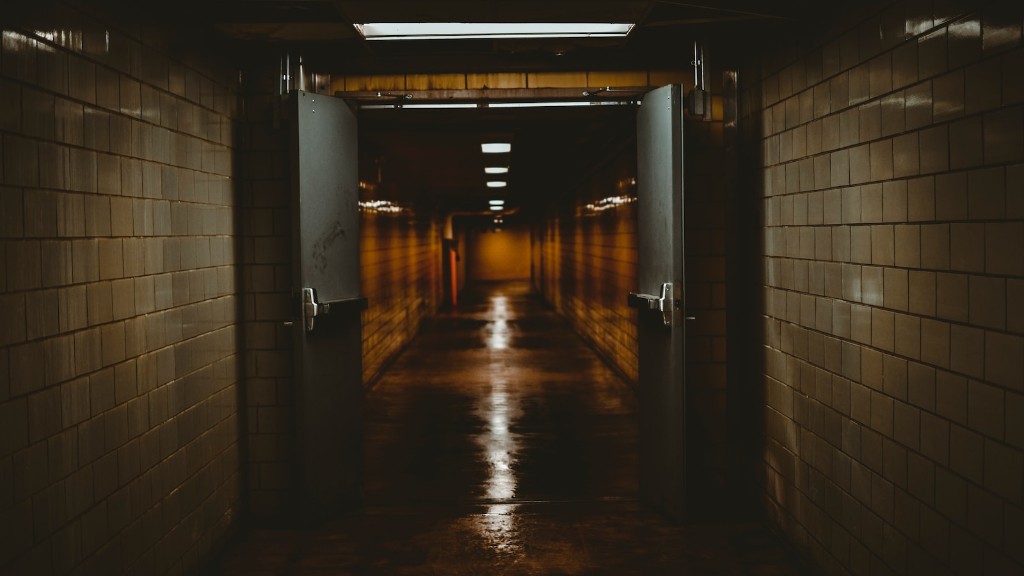Thriller movies are regularly referred to as horror films but are they truly horror? Thriller films are ambiguous. On the surface, they appear to be suspenseful and nerve-wracking movies that often contain violence, violence that causes fear. But does this mean they are necessarily horror films?
The difference between horror films and thriller movies lies in the type of fear they create. Horror typically creates a feeling of dread and focuses on a specific monster, such as a vampire or a murderer, while thriller films are more psychological in nature. Thriller films also contain more plot twists and suspense as opposed to horror films, which rely on jumpscares and shock value.
Many experts argue that the true definition of horror lies in the intention of the filmmaker. When a thriller is made with the intent of creating fear, then some would argue that it falls under the umbrella of horror films. On the other hand, there are certain elements that can make a film more clearly either a thriller or a horror. These include the presence of jump scares, supernatural elements, and the focus of the storyline.
Overall, the definition of horror is subjective, as it depends heavily on the individual’s interpretation of what horror is. Some people may argue that horror films contain a certain level of violence, while others may argue that it is the presence of dark themes that determine if a movie is horror or not. Ultimately, it is up to the viewer to decide what constitutes horror and what constitutes a thriller.
At the end of the day, the label of a horror film does not necessarily determine how scary the movie is. A thriller may be just as terrifying as a horror movie, and vice versa. What matters is that the film is able to draw the audience in and make them feel a range of emotions. After all, fear is an emotion, and it can be experienced in any movie, whether it is horror or not.
Violence and Gore
Of course, violence and gore are common in horror films, but they do not always have to be present in order for the movie to be classified as a horror film. This is because horror films rely on tension and fear to build suspense, rather than on the shock value of violence or gore. While violence and gore can serve to enhance the horror element of a movie, it is not always necessary for a film to be deemed a horror movie.
In thriller films, however, violence and gore are often used to create suspense and tension as much as in horror films. The difference lies in the nature of the violence and gore. Thriller films often focus on a psychological element of fear, creating suspense through scenes filled with intense violence or unsettling images. This is in stark contrast to horror films, which rely less on violence and more on shock value.
Ultimately, violence and gore can be present in either a thriller or a horror film, but it is their purpose that makes the difference. In horror films, violence and gore are used to shock and scare the audience, while in thriller films, they are used to create tension and suspense.
Appeal Of Thriller Movies
The appeal of thriller movies lies in their ability to keep the audience guessing. Unlike horror films, which focus on jump scares and shock value, thriller films focus on building suspense and tension. This makes for a more unpredictable and exciting ride for the viewers.
The intense suspense that is built up throughout the movie is one of the main reasons why people enjoy watching thriller films. It keeps them on the edge of their seats and constantly guessing what will happen next. As the tension builds and the plot twists, the anticipation and fear continue to grow, culminating in an explosive finale.
Another element of thriller films is the presence of unexpected twists. These plot twists can be unsettling, making the audience wonder what might happen next, and creating a feeling of unease and dread. The unpredictability of thriller films creates a heightened sense of terror that is unmatched by horror films.
Conclusion
In conclusion, the thrillers genre can sometimes be difficult to define. While some argue that it is horror, others would argue that horror and thriller films are two distinct genres. It is also important to note that whether or not a movie is classified as a horror or thriller depends heavily on the intentions of the filmmaker.
At the end of the day, the key difference between horror films and thriller films lies in the type of fear that they create. Horror films rely on shock value while thriller films rely on suspense. In addition, thriller films often contain unexpected plot twists that make them unpredictable and exciting.
Relation To Real Life
One of the reasons why viewers flock to thriller films is their relation to real life. Although the stories in thrillers may be farfetched, they often contain elements of realism that make them relatable to viewers. This connection to reality is one of the main reasons why people are drawn to these types of movies.
Whether it’s the intense suspense created by the suspenseful storyline or the unsettling feelings that come from the unexpected plot twists, the relation to real life is often the key to making thrillers such memorable experiences. This connection can make viewers feel as though they are living through the story themselves, and that can be a truly terrifying and exhilarating experience.
Role Of Fear In Thrillers
Although thrillers may be similar to horror films in some ways, the two genres differ greatly in how they make use of fear. Horror films use fear to shock and scare the audience, while thrillers use fear to create tension and suspense. This is why thrillers are often more unpredictable than horror films, as the audience is constantly guessing what will happen next.
Rather than relying on jump scares, thrillers rely on the element of suspense to make them effective. This is why thrillers are often slow-paced and contain unexpected plot twists, as they are designed to create a feeling of unease and anticipation. This anticipation builds throughout the film, culminating in an explosive finale that makes the audience’s heart race like never before.
At the end of the day, fear is a powerful tool, and when used in the right way, it can be an effective tool for creating a thrilling experience. Whether it is horror or thriller, the primary purpose of fear is to elicit a feeling of dread or unease, and in the case of thrillers, suspense.
Social Impact Of Thrillers
In addition to the intense suspense that thrillers provide, they can also have a lasting social impact. Thrillers are often seen as moral tales that explore issues of justice and morality. Through these stories, viewers are often able to explore ethical dilemmas and consider their own moral choices.
By mirroring real-life situations and providing an exciting, yet thought-provoking perspective on the world, thrillers can have a lasting social impact. This impact is felt not only by those who watch the movies, but also by those who make them. By addressing difficult topics, filmmakers can create movies that not only entertain, but also challenge their viewers and make them think about the world and their place in it.
At the end of the day, thrillers may not be as bloody and gory as horror films, but they can still be highly effective in creating a sense of fear and suspense. With their unpredictable plots and intense depictions of violence and gore, thrillers can be just as captivating and unsettling as horror films, if not more.




